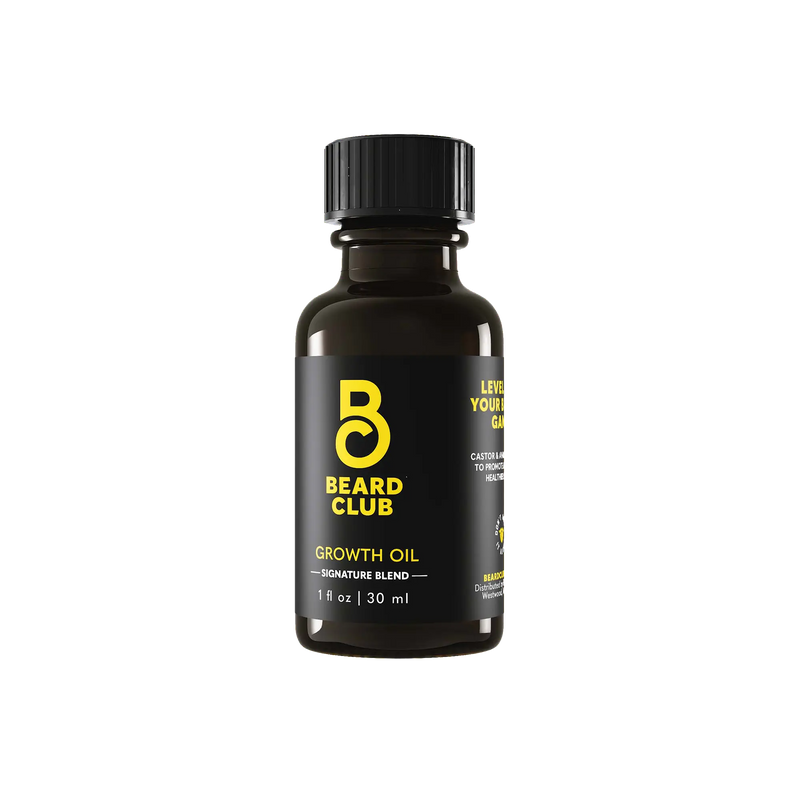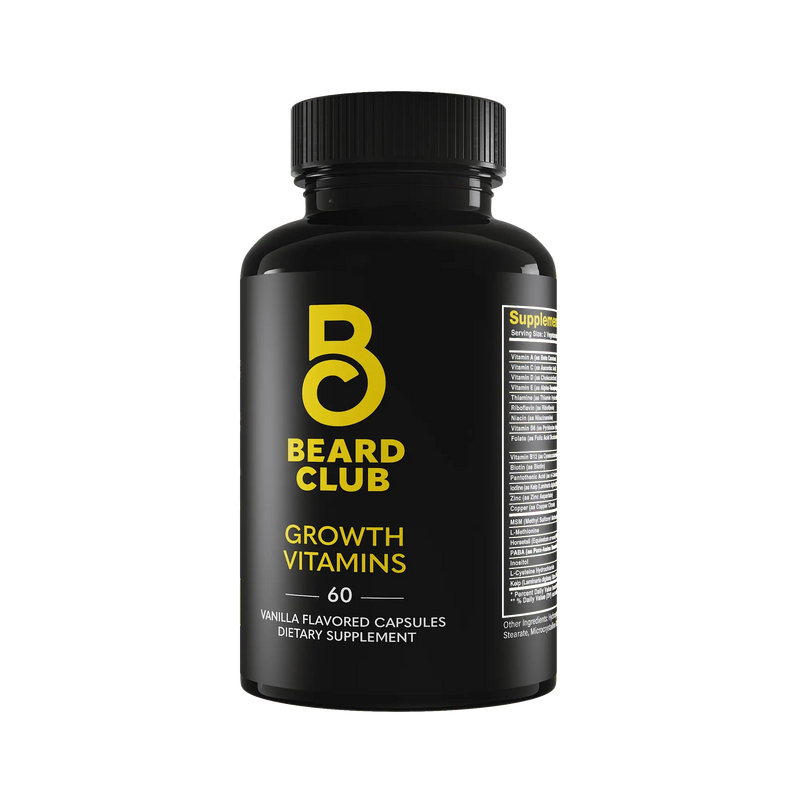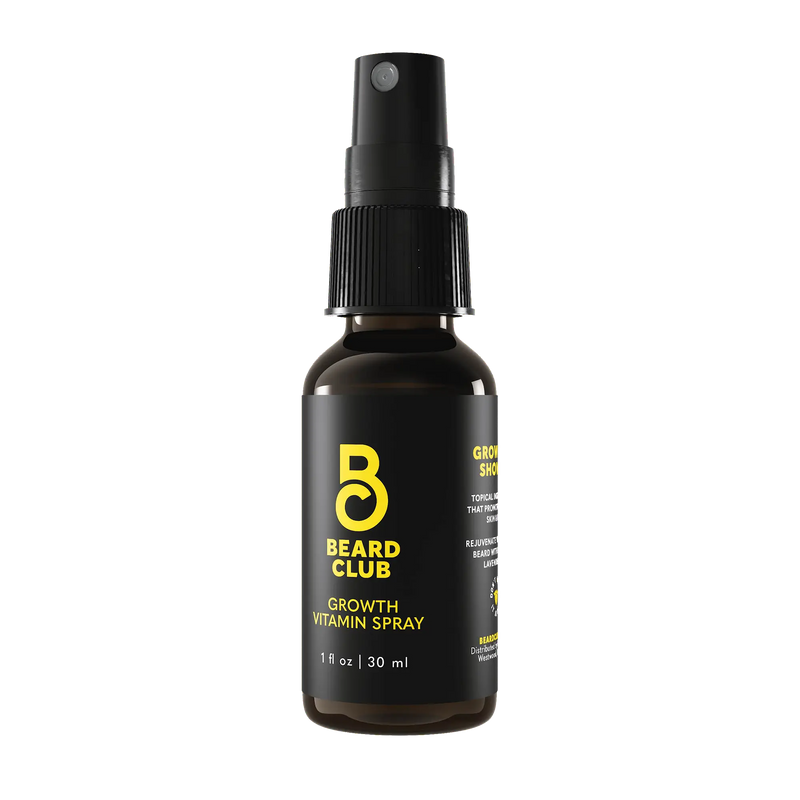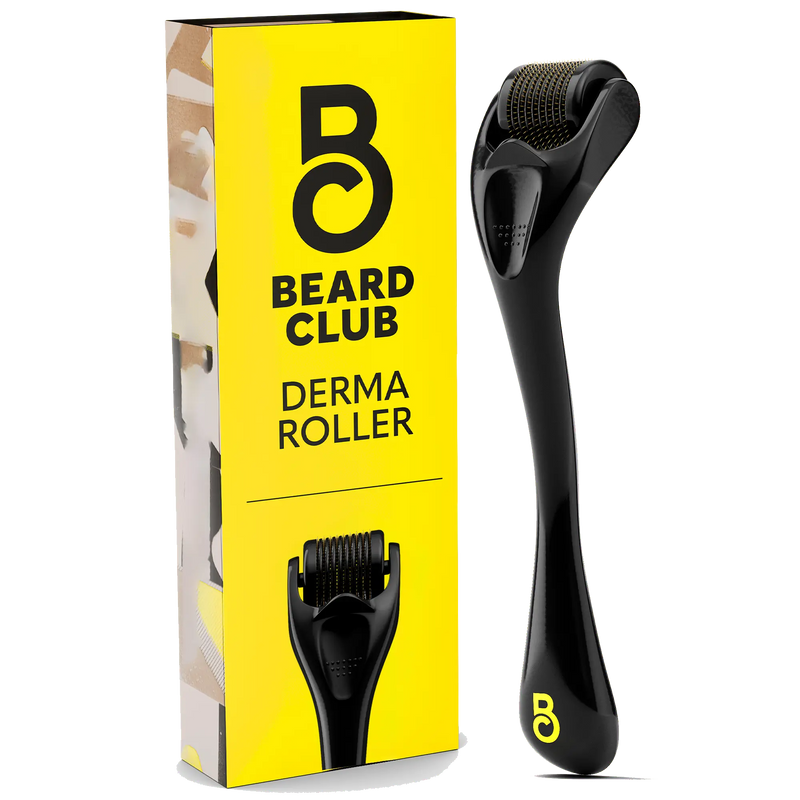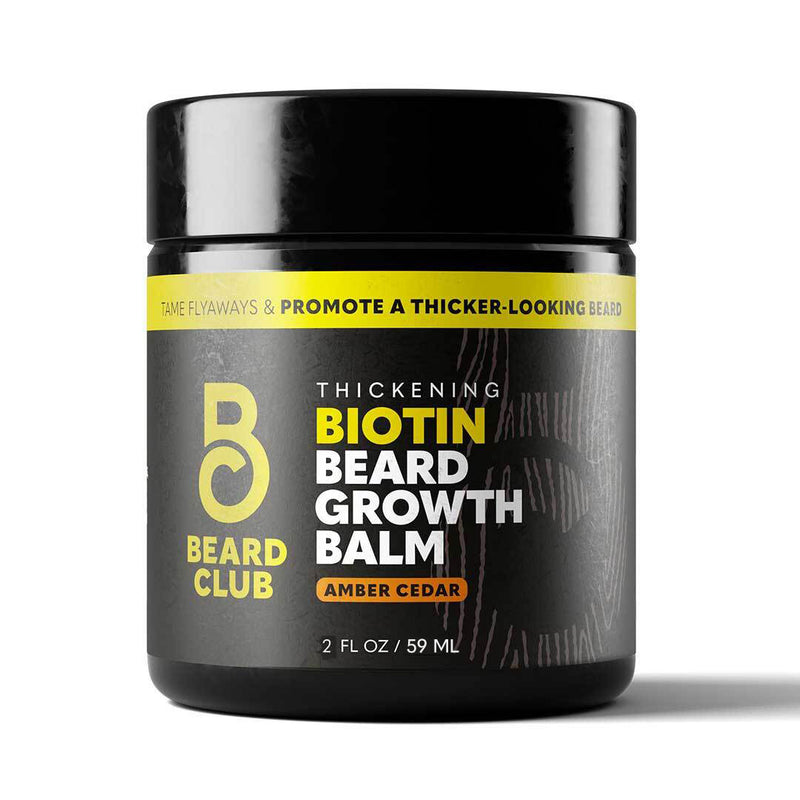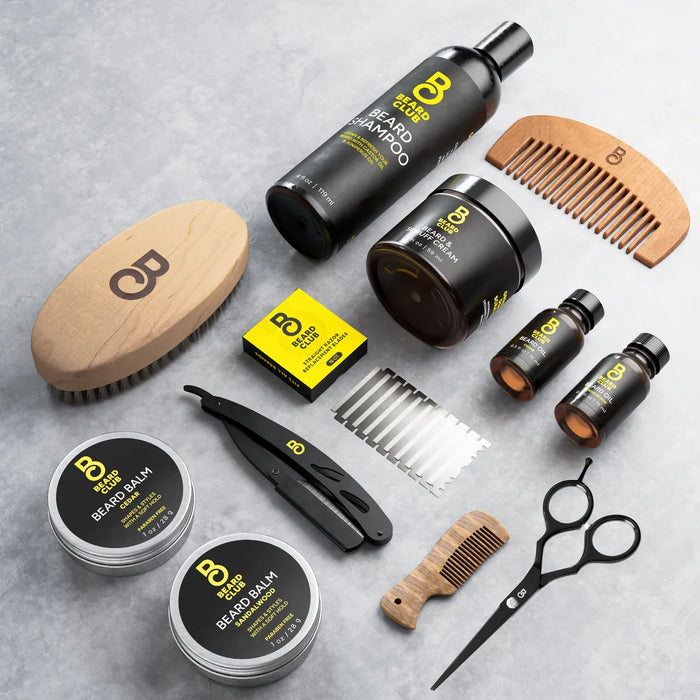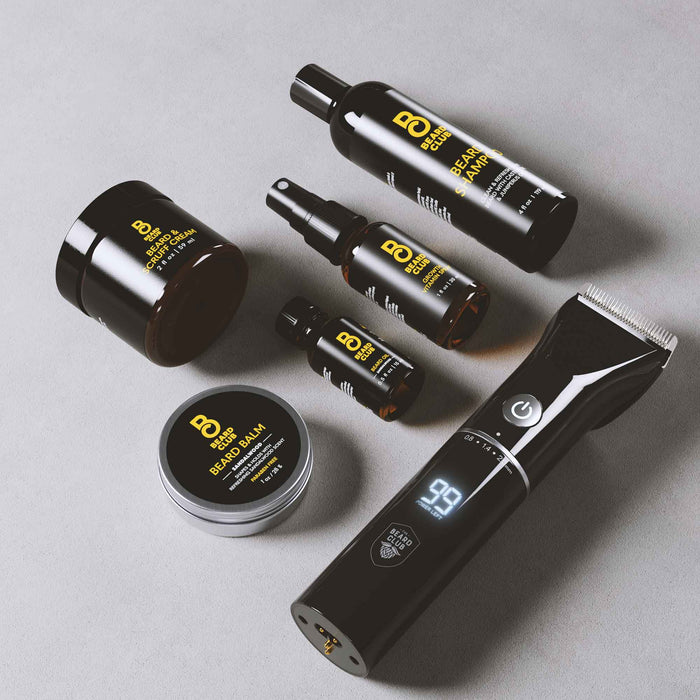Beard Genetics: Is Beard Growth Genetic?
When it comes to facial hair, there's an air of mystery surrounding its growth and thickness. If you’re like most guys, you might be wondering if genetics have anything to do with your ability (or struggle) to sport a thick, full beard. Understanding the science behind beard growth can shed light on this baffling topic.
As we dive into the relationship between genetics and beard growth, we’ll explore the factors that lead to that coveted mane of facial hair. By unraveling the secrets of hair follicles, hormones, and genetic factors, we’ll learn the truth about a question we often hear at The Beard Club: "Is beard growth genetic?"
The Science Behind Beard Growth
To grasp the connection between genetics and beard growth, we need to delve into the scientific aspects of facial hair development. Beneath the surface of your skin lie hair follicles, tiny structures that orchestrate the growth of hair all over your body, including your face. These follicles hold the secret to your beard's destiny.
Hair follicles go through cycles of growth, rest, and shedding. During the growth phase, known as anagen, the follicles actively divide and multiply, giving rise to fresh hair growth. This process ensures the continuous renewal and upkeep of your facial hair.
Facial hair and scalp hair don’t grow in exactly the same way. The follicles responsible for your beard possess androgen receptors, which bind to hormones like testosterone. These androgens, such as testosterone and its derivative dihydrotestosterone (DHT), influence both the presence and growth of facial hair.
Testosterone levels vary from person to person, impacting beard growth in unique ways. Higher levels of testosterone generally lead to increased facial hair growth, while low testosterone levels may result in sparser growth. However, testosterone alone doesn't determine beard growth. Genetic factors are also part of the process, as everyone responds to testosterone differently.
By unraveling the science behind hair follicles and the role of hormones, we gain deeper insights into the genetic factors shaping a man's beard. Understanding these intricate dynamics enables you to navigate the fascinating relationship between genetics and facial hair growth.
Unleashing the Power of Testosterone for Beard Growth
When it comes to facial hair, testosterone takes center stage. This hormone, which is actually present in both men and women, plays a crucial role in promoting hair growth, including the growth of your beard.
Testosterone acts as a catalyst for your hair follicles, encouraging them to produce thicker and longer hair, resulting in a fuller, more impressive beard.
However, beard growth isn't solely determined by testosterone levels. The conversion of testosterone into dihydrotestosterone (DHT) is also a major factor. It binds to the androgen receptors in your beard follicles, activating and fueling the growth process.
The sensitivity of your hair follicles to DHT enters the equation, too. Some guys have follicles that are highly receptive to DHT, leading to lots of facial hair and enviable, thick beards. Those with lower sensitivity may find their beards show sparser growth.
Unraveling the Genetic Secrets of Beard Growth
Genetic factors play a huge role in unlocking a man's beard growth potential, which we really start to see when we compare beard growth patterns across different ethnicities. For example, men of European descent often have bushy beards, thanks to their genetic predisposition.

The transmission of beard growth traits through generations further underscores the significance of genetic influences. If a man's father or grandfather had a majestic beard, odds are he possesses similar genetic foundations for facial hair growth. That said, remember that genetics are multifaceted, and various gene combinations contribute to the final outcome. Relying solely on family history to predict beard growth patterns may not be foolproof — Grandpa’s mutton chops may still be out of your reach.
Embracing the Beard Journey: Beard Growth Patterns and Hair Loss Challenges
When it comes to growing a beard, every guy's path is unique. Some are blessed with a naturally thick and evenly distributed beard. For others, achieving that desired fullness can be an uphill battle, thanks to patchy growth or uneven density.
A full beard, characterized by well-distributed, thick facial hair, is often the envy of many. The interplay of genetic factors and the hormone testosterone takes center stage in shaping this magnificent mane. Together, they work their magic to grow a voluminous beard.
Some men may find themselves grappling with patchy beard growth, faced with the frustration of uneven hair distribution. This occurs when hair follicles on certain areas of the face are less responsive to hormonal stimulation or when hair growth cycles fall out of sync, leaving gaps and inconsistencies in the beard.
Beyond the challenges of patchiness, some individuals may confront issues related to hair loss in the beard area — baldness may not just occur on your head. Alopecia areata, an autoimmune condition, can wreak havoc by causing localized patches of hair loss, including in the beard region. Although relatively uncommon, the impact of alopecia areata on beard hair can cause big changes in the way your beard looks.
Lifestyle Factors: Influencing the Beard's Destiny
While genetics lay the foundation for beard growth potential, the choices we make in our everyday lives can significantly influence the expression of those genetic traits.
Eat Right for a Lush Beard
Nourishing your body with a healthy diet becomes paramount in fostering optimal beard growth. A well-balanced diet, abundant in proteins, vitamins (such as biotin and vitamin E), and minerals (like zinc), provides the vital building blocks for healthy hair follicles and a thicker beard.
To promote beard growth, consider incorporating the following foods into your diet:
- Protein-Rich Foods: Lean meats, poultry, fish, eggs, and legumes like lentils and beans are excellent sources of protein. Protein is crucial for the production of keratin, the protein that makes up your hair strands.
- Biotin-Rich Foods: Eat foods high in biotin, such as nuts (particularly almonds and walnuts), sweet potatoes, avocados, and eggs. Biotin aids in strengthening hair follicles and promoting healthy beard growth.
- Vitamin E-Rich Foods: Add foods rich in vitamin E to your meals, including spinach, kale, broccoli, sunflower seeds, and almonds. Vitamin E supports blood circulation, contributing to healthier hair follicles.
- Zinc-Rich Foods: To boost beard growth, incorporate zinc-rich foods like oysters, beef, lamb, pumpkin seeds, and chickpeas into your diet. Zinc plays a role in regulating hormone levels and supporting hair follicle health.
Care for Your Body in Other Ways
Beard care from the inside out doesn’t stop with a healthy diet. Lifestyle choices also come into play. Engaging in regular exercise helps regulate hormone levels, including testosterone, casting a positive impact on facial hair growth.
Managing stress becomes equally vital, as chronic stress can disrupt the delicate balance of hormones, potentially hindering beard growth in the process.
As you embark on your own personal beard journey, remember that both genetics and lifestyle factors shape the destiny of your facial hair. Embrace the uniqueness of your growth pattern and navigate the challenges with confidence, knowing that you hold the power to nourish and nurture a flourishing beard.
Unleash Your Beard's Potential
If you're seeking to amp up your facial flow, there are several steps you can take to enhance your beard growth. While genetics and lifestyle factors play the primary role, The Beard Club offers products to help bring your dream beard to life!
To complement your healthy lifestyle, explore our range of supplements specially formulated to support beard growth and thickness. Our supplements contain a unique blend of vitamins, minerals, and extracts believed to nourish hair follicles and stimulate beard growth.
In addition to supplements, incorporating a regular beard care routine that includes beard oil can work wonders on the appearance and manageability of your beard. Applying beard oil regularly provides essential moisture and conditioning to your facial hair, promoting overall health and an impeccable look. Our beard oils contain enriching ingredients like rice bran oil, sweet almond oil, and fragrant essential oils, offering a natural path to supporting beard health.
What To Do if Your Beard Still Won’t Grow
Not everyone has the luxury of effortlessly growing a thick and uniform beard. For those confronted with challenges like naturally thin or patchy growth, solutions abound. Innovative grooming techniques and styling options can address specific beard growth issues, giving the illusion of a fuller, more heavenly beard.
If patchiness poses a challenge, strategic trimming and shaping can work wonders in managing uneven areas. By sculpting your beard and removing excess hair in specific regions like the artist you are, you can create a more balanced look. Experimenting with different beard styles, like goatees or sideburns, can also help you find a style that works with your existing growth pattern.
Get Growing
Understanding the intricate dynamics of genetics, hormones, and lifestyle factors is critical in unraveling the science of beard growth. While genetics lay the foundation for your beard's potential, choosing a healthy diet, managing stress levels, and practicing healthy grooming techniques can influence the expression of those genetic traits.
Remember, beard growth is a personal journey, and the key to achieving a remarkable beard lies in embracing your unique genetic makeup while actively supporting it with a health-conscious and well-informed approach. So, equip yourself with knowledge, take pride in your beard-growing journey, and let The Beard Club be your trusted companion along the way.
Sources:
How Do Hair Follicles Function? | Healthline


